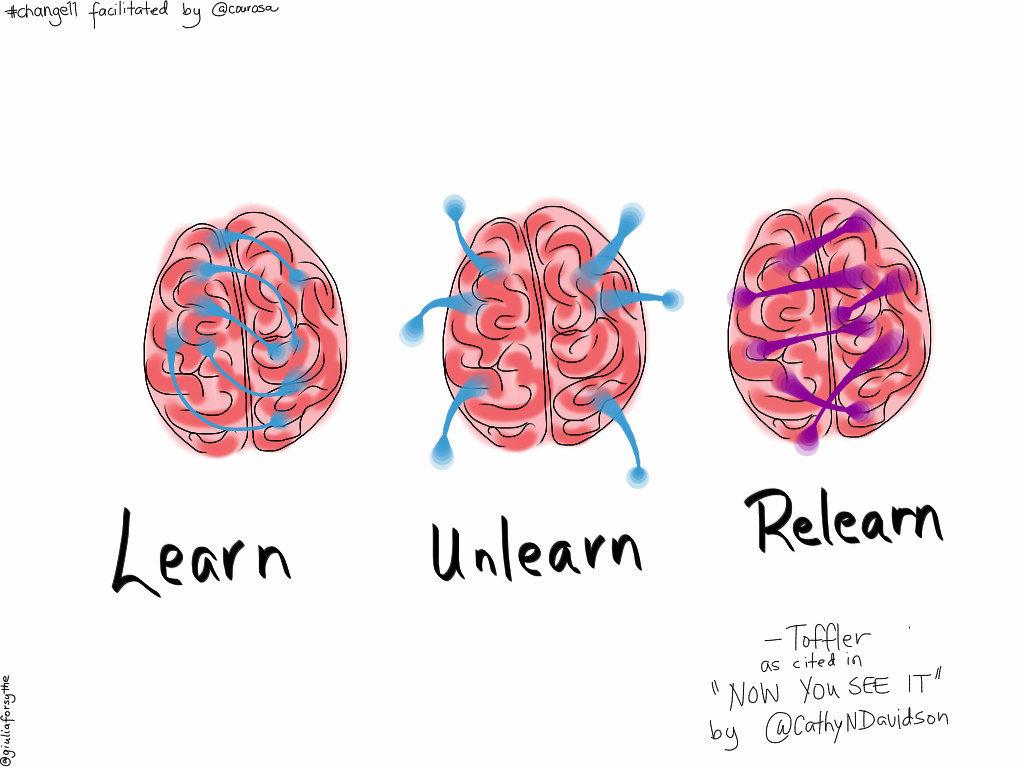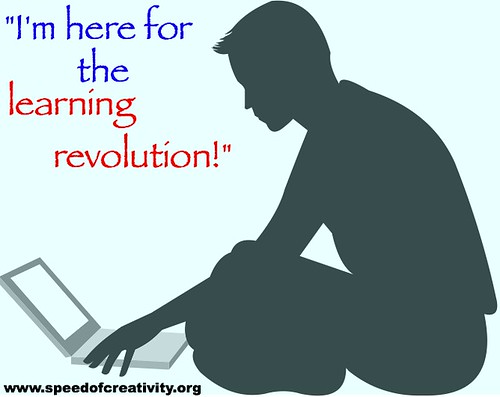Educators today play a vital role ensuring the students are prepared for the 21st century. There are many challenges that will need to be addressed for educators to be effective in teaching the next generation of learners. For example, "for more than a hundred years we have designed gives me defined being literate as being able to read and write"; However this is not enough to ensure understanding in our 21st century world. Students will need to learn how to be editors, publishers, creators and collaborators.
Educators will need to also consider the work that we do to help students become literate is helping them to communicate and connect to other learners; to other people who might share their passion. Learning, sharing, and growing online is not just about creating content but about making a connection and making the world a better place.
With some of the big shifts that are taking place with the open content and multiple teachers being accessible, the classroom teacher is no longer the sage on the stage. We are no longer the holder of all the information. So, we must look at how we can help our students. Teaching them how to use the tools how to be digitally responsible citizens will play a big part in it. Also being a learner next to our students will show them a good model of what it means to learn. We must help them see what it means to look through all the content and determine what is good content what is not good content. They must become critical thinkers and critical consumers of this information.
Another interesting big shift that we must make as teachers is understanding that writing is no longer limited to the text. That means the use of podcasts, blogs, videos, and music will be another way that students are able to communicate in their world. Understanding that the test is not the end of learning that Mastery continues on will drive our students to get better. Teaching students to share their learning the world, accepting feedback, and making changes that will reflect that new learning as they construct their knowledge in a shared collaborative environment is a new thing that we have not had to deal with until fairly recently.
The challenges we face is educators should be flexibility and a new desire to learn and teach these students in ways that we did not learn; in ways that we were not taught, to help them navigate a world that is not yet created; that is not yet fully formed. It is exciting. It is scary. But we must rise to the occasion and be willing to learn and teach in a new way.
Derrick
Wednesday, July 18, 2018
Saturday, July 14, 2018
TEC 950- Cool Tools in the Classroom
Thinking back on this Web 2.0 course, I have been exposed to many helpful technology tools. The assignment is about narrowing down one of the tools that stood out to me. While there are many good aspects of the different tools used during this course, there's one that I can see myself using in the classroom more than the others.
The use of the class blog I think will be a good addition to a 21st century classroom. It uses many of the different skills that we want our students to learn to communicate, to think creatively and critically, and work and share collaboratively with their peers and the world, This makes the tool stand out from the others in the way it can be used in the classroom. The versatility of the blog will allow for students to make contributions based not just on writing but they can use many of the multimedia tools and things that we also learned about in this course. Students will be able to add pictures, video, Slides, Docs, screencasts and more to their blog posts.

There's a quote that I'm sure I'm going to mess up a little bit and I don't remember who it's from but it said something like this, "when students are writing for others they will make sure it's good. When students are writing just for the teacher, they will make it good enough". Having an audience outside of the classroom can be exciting and help our students understand the importance of the writing process and carefully communicating ideas.
In addition to share thoughts on the web, students will be able to critique and communicate feedback to their peers. This will help them become a good digital citizen in producing good, positive feedback that is specific and helpful. Being able to give AND receive this feedback can be a little scary at first, but hopefully I can create a classroom culture that allows for this. Doing this course and being challenged in different types of technology I might not have done has helped me stay in the learning mindset--learning new things can be hard, scary and fun. Hopefully I can share that with the students.
Derrick
The use of the class blog I think will be a good addition to a 21st century classroom. It uses many of the different skills that we want our students to learn to communicate, to think creatively and critically, and work and share collaboratively with their peers and the world, This makes the tool stand out from the others in the way it can be used in the classroom. The versatility of the blog will allow for students to make contributions based not just on writing but they can use many of the multimedia tools and things that we also learned about in this course. Students will be able to add pictures, video, Slides, Docs, screencasts and more to their blog posts.
There's a quote that I'm sure I'm going to mess up a little bit and I don't remember who it's from but it said something like this, "when students are writing for others they will make sure it's good. When students are writing just for the teacher, they will make it good enough". Having an audience outside of the classroom can be exciting and help our students understand the importance of the writing process and carefully communicating ideas.
In addition to share thoughts on the web, students will be able to critique and communicate feedback to their peers. This will help them become a good digital citizen in producing good, positive feedback that is specific and helpful. Being able to give AND receive this feedback can be a little scary at first, but hopefully I can create a classroom culture that allows for this. Doing this course and being challenged in different types of technology I might not have done has helped me stay in the learning mindset--learning new things can be hard, scary and fun. Hopefully I can share that with the students.
Derrick
Subscribe to:
Posts (Atom)

